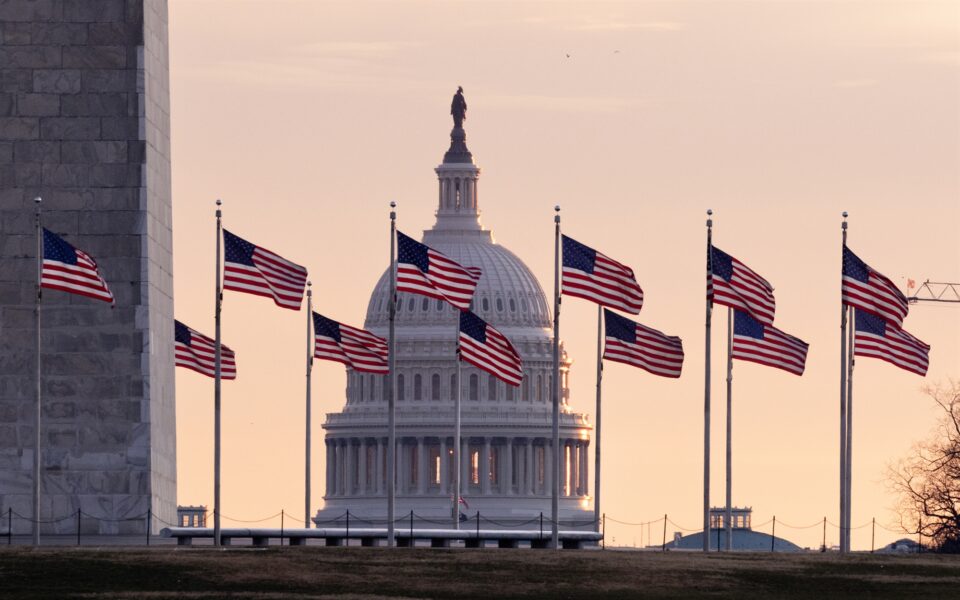The United States vs itself

The US political system is remarkably divided, and public trust in its core institutions –particularly Congress, the judiciary, and the media –is at historic lows. Add algorithmically amplified disinformation to the mix, and Americans no longer believe in a common set of settled facts about their nation and the world. The two major parties’ likely presidential candidates are widely considered unfit for office. Donald Trump faces dozens of felony criminal charges, many directly related to actions taken during his presidency. President Joe Biden would be 86 years old at the end of his second term. A clear majority of Americans want neither to lead the nation.
Partisan bitterness will increase in the run-up to the election. From the moment he (almost certainly) secures his party’s presidential nomination, Trump will hijack Republican and American politics, as even the most reluctant of Republicans in Congress –and most conservative media, activist groups, and monied interests –will fall in line behind him. His policy pronouncements, however outlandish, will shift the national narrative and shape the policy direction on Capitol Hill and in statehouses across the country. The result will be even more policy extremism, division, and gridlock.
Knowing he faces prison time if he loses in November, Trump will use his online platform, his control of the Republican Party, and his connections with friendly media to delegitimize both the justice system that is prosecuting him and the integrity of the election itself. His ability to cast himself as a populist martyr and his preemptive claims of election fraud will find a receptive audience among conservative Americans. These efforts won’t cripple the electoral process, but they are sure to persuade many of his supporters to doubt the election outcome’s legitimacy – a problem exacerbated by AI-fueled disinformation and social media echo chambers.
In a world beset by war and economic weakness, the prospect of a Trump victory will weaken America’s position on the global stage as Republican lawmakers take up his foreign-policy positions and as US allies and adversaries hedge against his likely policies.
Even before the election is decided, US support for Ukraine will face stronger headwinds in Congress, straining the transatlantic alliance and leaving Ukrainians and their frontline European supporters in the lurch. Kyiv will take increasingly reckless actions to make what gains it can before the next president takes office, while Vladimir Putin’s hopes for a definitive end to US aid in 2025 will stiffen Russia’s resolve to keep fighting.
In the Middle East, Trump’s prominent support for Israel and an aggressive approach to Iran will limit Biden’s political space for policy maneuver. Pressure from congressional Republicans will make it politically harder for Biden to preserve the “thaw” in relations with China this year. The shadow of Trump will lead US allies and adversaries to brace for his return to office, with destabilizing consequences long before Inauguration Day.
If Trump wins the election, Biden will concede. But while Democratic leaders may be less likely to claim the election was “rigged” than the former president, they will still treat Trump as illegitimate, believing he should be in prison. The response in major cities would be a repeat of the massive street protests during the 2016 presidential transition, but in a country now even more bitterly divided and with more Democrats convinced that Trump 2.0 threatens the future of American democracy. Whether driven by clashes with counter-protestors, extremist elements, or opportunistic bad actors, widespread violence is a real risk.
If Trump loses, he will do everything in his power, legal or illegal, to contest the outcome and impugn the legitimacy of the process. As a challenger, he would have fewer options for challenging the results than he had as president in 2020. But that will not stop him from trying – especially if he faces the real possibility of prison time. He will allege mass fraud once again. He will incite widespread intimidation campaigns against election workers and secretaries of states in both red and blue states, demanding they “find” extra votes for him. He will lean hard on Republican governors to submit slates of Republican electors in states Democrats won. He will pressure Republican senators and representatives to disqualify Democratic electoral college votes. None of these tactics is likely to succeed, but they will inflict further damage on already low public confidence in the integrity of America’s democratic institutions.
Barring an unlikely Democratic landslide, Republicans will see a Biden win as illegitimate, alleging either that the election was “stolen” or that politically motivated investigations made it more difficult for Trump to campaign. They will see Trump’s incarceration as a case of political persecution. While large-scale violence is less likely in this environment, America’s political divide would deepen, and the nation’s fragmentation into red vs. blue states, cities, and towns would accelerate, further politicizing decisions on where to live, do business, and invest.
The United States is already the world’s most divided and dysfunctional advanced industrial democracy. The 2024 election will exacerbate this problem no matter who wins. With the outcome of the vote essentially a coin toss (at least for now), the only certainty is continued damage to America’s social fabric, political institutions, and international standing.
Ian Bremmer is the president and founder of Eurasia Group and GZERO Media.





